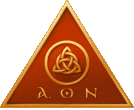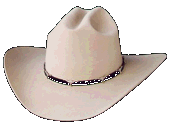"Nicknamed the Oligarchs, these men, all billionaires, manoeuvred their way into Russia's political inner circle during Glasnost, are credited with Boris Yeltsin's re-election in 1996, and suspected of anointing Vladimir Putin in 1999. They're powerful men with powerful enemies, and they continue to shape Russian society. Dizzying in its detail, The Rise and Fall of the Russian Oligarchs puts modern-day Russia into perspective."
"The Russian oligarchs are business entrepreneurs who started under Gorbachev during his period of market liberalization. Rare goods, such as PCs and jeans, were smuggled into the country and sold on the black market for a hefty profit, an unforeseen consequence of partial market liberalization with still excessive trade restrictions. In the 1990s, the oligarchs emerged as well connected entrepreneurs who started from nearly nothing and got rich through participation in the market via connections to the corrupt, but democratically elected, government of Russia during the state's transition to a market-based economy."
From Russian Forbes, May 2005. Wealth in 1,000,000,000 (Billion USD).
1. Roman Abramovich 18.2 (Millhouse Capital, sold Sibneft Oil)
2. Vladimir Lisin 7.0 (Novolipetsk Steel)
3. Viktor Vekselberg 6.1 (Renova Group)
4. Oleg Deripaska 5.8 (Rusal Aluminium)
5. Mikhail Fridman 5.8 (Alfa Group)
6. Vladimir Yevtushenkov 5.1 (Sistema Telecommunications, Finance, Real Estate)
7. Alexei Mordashov 5.1 (Severstal Ferrous Metallurgy)
8. Vladimir Potanin 4.7 (Interros)
9. Mikhail Prokhorov 4.7 (Interros)
10. Vagit Alekperov 4.1 (LUKoil Petroleum)
11. Viktor Rashnikov 3.6 (Ferrous Metallurgy)
12. German Khan 3.5 (Finances, Telecom)
13. Boris Ivanishvili 3.0 (Metallurgy, Finances)
14. Alexander Abramov 2.9 (Evraz Group steel)
15. Aleksei Kuzmichev 2.7 (Petroleum, Finances, Telecom)
16. Suleiman Kerimov 2.6 (Investor)
17. Vladimir Bogdanov 2.3 (Petroleum)
18. Iskander Makhmudov 2.2 (Non-Ferrous Metallurgy)
19. Nikolay Tsvetkov 2.2 (Uralsib Finance)
20. Alisher Usmanov 2.0 (Ferrous Metallurgy)
21. Mikhail Khodorkovsky 2.0 (Yukos Petroleum)












No comments:
Post a Comment